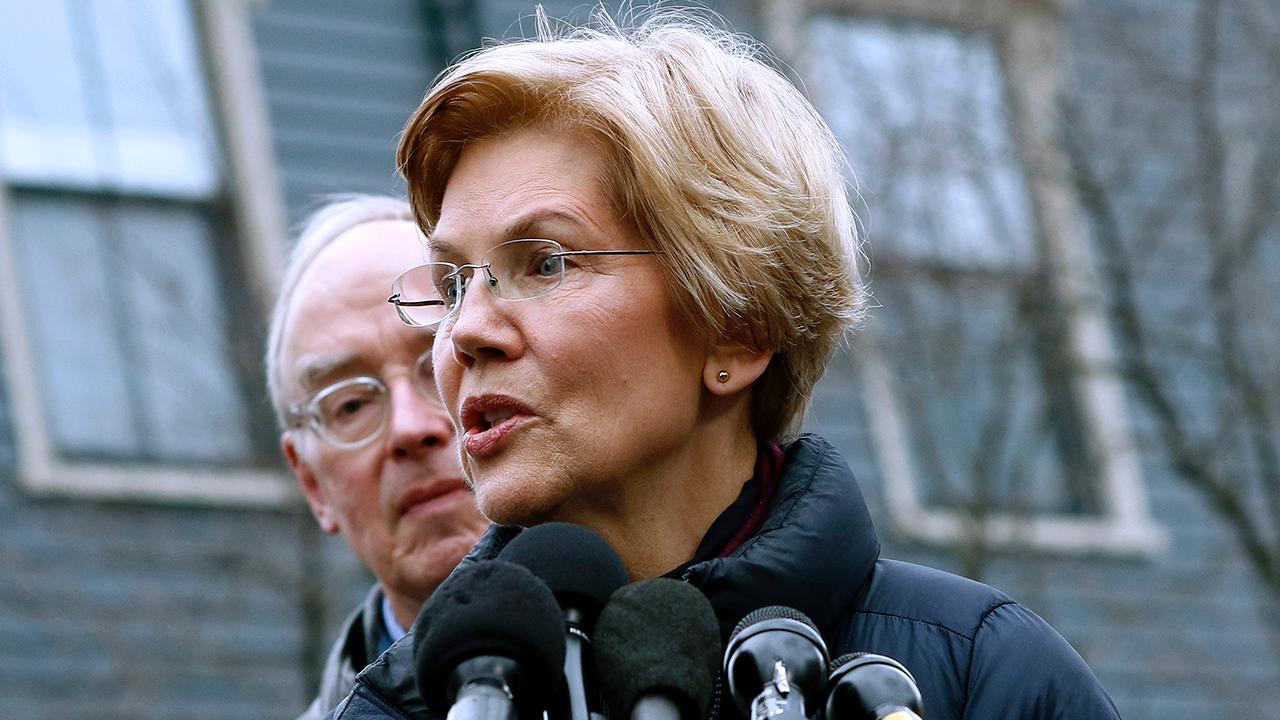What happens if the government cancels all student loan debt?
As outstanding student loan debt in the U.S. continues to climb – at the end of June, borrowers owed a whopping $1.6 trillion – plans to eliminate student debt have gained traction among some Democratic presidential candidates.
On Tuesday, 2020 hopeful and Massachusetts Sen. Elizabeth Warren released details about her plan to cancel approximately $640 million in student loan debt for roughly 42 million Americans. The Student Loan Debt Relief Act, which she first unveiled in April, would eliminate up to $50,000 in student loan debt for every household with an income less than $100,000.
Warren’s plan came on the heels of legislation from 2020 rival Vermont Sen. Bernie Sanders, which went incrementally further in proposing to cancel all $1.6 trillion of student loan debt in the U.S.
Both candidates said tax hikes – either on the wealthy, in Warren’s case, or Wall Street, in Sanders’, – would pay for the cost of eliminating debt, $1.4 trillion of which belongs to the federal government. However, the proposals left analysts scrambling to figure out what, exactly, eliminating student loan debt meant for the U.S. economy.
About one in six American adults owes money on federal student loan debt, which is the largest amount of non-mortgage debt in the U.S. It’s been cited by many as a hindrance in people’s economic lives, including by Federal Reserve Chairman Jerome Powell. In fact, according to a study from the NeighborWorks America at Home, 59 percent of millennials knew someone who delayed buying a home because of student loan debt.
But eliminating all student is no easy feat: For starters, it’s expensive, although Warren and Sanders both contend it could stimulate the economy.
A study conducted last February showed that the candidates could be right. The authors of “The Macroeconomic Effects of Student Debt Cancellation” found that cancellation would have a “meaningful” stimulus effect, characterized by greater economic activity, measured by the GDP and employment reports, with a limited impact on federal budget deficit, interest rates and inflation. The authors also estimated it could result in the creation of 1.18 to 1.155 million new jobs per year.
“Our analysis suggests that debt cancellation is a feasible program that would increase economic activity in the short run with moderate consequences on the federal deficit,” the report concluded. “These consequences should be balanced against the important social gains available from greater investment in higher education and the relief of debt as educators, advocates, borrowers, and policymakers continue to debate the path forward for US higher education.”
However, a study published in 2015 found that eliminating all of the student loan debt like Sanders wants to do, could in fact exacerbate the racial wealth gap. White families could actually see a greater benefit, due to a higher likelihood of completing college and graduate degree programs, according to the study.
“Policies which eliminate all student debt for young households would expand the divide between median Black and white wealth by an additional 9 percent,” the study said.
CLICK HERE TO GET THE FOX BUSINESS APP
However, the study concluded that a debt-elimination policy that targets low-income households, which is more in line with Warren’s vision, could “dramatically” reduce the wealth divide.




















